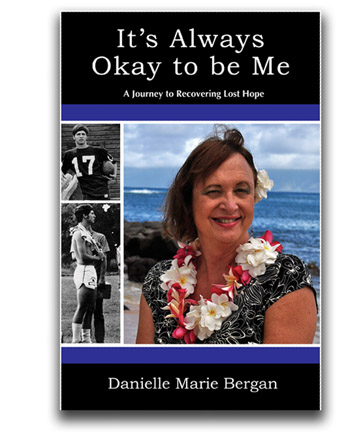A transgender student who was at the forefront of a fight for equal access to gender-appropriate facilities at a central Illinois high school is being remembered as a quiet but fierce trailblazer.
Alex McCray, 22, who was majoring in social work at Fontbonne University, died Jan. 4 in St. Louis.
Denise Bentele, a Fontbonne spokeswoman, said the school’s interim chief operating officer had informed the campus community Friay of McCray’s death. Students were offered counseling.
Bentele did not disclose the cause of McCray’s death.
McCray, who was identified as female at birth but identified as a male, filed a complaint with the Illinois Department of Human Rights in October 2015 over equal access to the gender-appropriate bathroom and locker rooms at Williamsville High School. McCray, then a senior, enlisted the help of the American Civil Liberties Union in Chicago to reach a settlement with the school allowing him and other students to use facilities that match their gender.
McCray won the ACLU’s John R. Hammell Award for his contribution to fight for equal rights for LGBTQ Americans in 2017. The Illinois Safe Schools Alliance named him activist of the year in 2016.
McCray was assigned a female identity at birth but transitioned to male his sophomore year in high school.
He said he initially went along with the high school’s decision that he use a separate bathroom because he felt more comfortable. But as he got older and more mature, he decided he wanted to use the boys bathroom because that’s what he used in public.
McCray eventually protested and refused to use the designated bathroom saying it stigmatized him. That’s also when he decided to file the complaint to force a change, he said.
“I don’t know if Alex saw himself as a pioneer, but he became a pioneer,” said Tonia Faloon-Sullivan, a U.S. history teacher at Williamsville High School, who stayed in touch with McCray.
Faloon-Sullivan said she felt the school district “wanted a safe place for Alex, but it was uncharted territory, perhaps, at that time.”
In 2016, what bathroom transgender students should use at school had become a hot-button issue, with several state legislatures around the U.S. weighing in on the matter.
The year before, the U.S. Department of Education found that a suburban Chicago school district was in violation of federal law for denying a student who was transgender access to a gender-appropriate locker room.
Faloon-Sullivan said that while a majority of staff members were accepting of McCray, “I’m sure he was hassled by some of the kids, but he was going to be who he was going to be.”
Ed Yohnka, ACLU Illinois director of communications and public policy, said then-Williamsville Sherman superintendent David Root was “someone who wanted to do the right thing.
“I like to think he was moved by Alex’s courage,” Yohnka added. “It was the confluence of the right people at the right time. (Superintendent) Root and Alex were probably well paired in that regard.”
Yohnka said McCray was the first transgender student willing to go public and speak out about his efforts and advocacy.
“That made a huge difference in creating an environment for other students who have been willing to come forward and speak on these issues,” Yohnka said.
McCray admitted to Yohnka that he didn’t know “what would happen” when he returned to school the day after a State Journal-Register article appeared recounting his story, but “he had students high-fiving him in the hallway,” Yohnka recalled.
“He was able to articulate why this mattered and why it mattered to students beyond his own school time,” Yohnka said. “He realized he was blazing a path. His courage and his ability to be a fierce advocate is something no one is going to soon forget.”
A Facebook post by the Phoenix Center, which serves central Illinois’ LGBTQ community, remembered McCray as “a very talented, intelligent young person gone way too soon. Let’s all continue Alex’s fight to make sure all LGBTQ individuals have resources and support.”
Faloon-Sullivan said McCray inspired her to ask her students what pronouns they prefer to go by.
“Transgender rights issues were always at the forefront of what he was interested in,” she said. “He was a brave young man. He will not be forgotten by those who knew him well.”
 n LGBTQ-inclusive curriculum in the Garden State is coming to fruition.
n LGBTQ-inclusive curriculum in the Garden State is coming to fruition.
